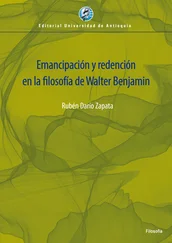I must interrupt the story here, not only to explain that a Chevaux-Légers regiment is what we call a cavalry regiment today, but also to tell you that this French word was written entirely wrong, as if it were spelled just as it sounds. This is important because you will have to imagine the spelling in the letter that Kaspar Hauser had with him and that I will read to you in a bit. Once you have heard this letter, you will have no problem imagining why the cavalry captain didn’t tarry with the boy, but tried to be rid of him the quickest way possible, which was to call the police. You know that the first thing that happens when something is brought to the attention of the police is that they open a file. And on that day, when the cavalry captain, not knowing what he should do with Kaspar Hauser, turned him over to the police, the first file was created of what would become the massive collection of “Kaspar Hauser” files, which are preserved today in forty-nine volumes in the state archives in Munich.
This first file clearly states that Kaspar Hauser came to Nuremberg as a savage idiot, whose vocabulary consisted of no more than fifty words, who understood nothing that was said to him, and had only two answers to all the questions he was asked: “Wanna be a rider” and “Dunno.” But how did he come to have the name Kaspar Hauser? That’s a strange story in itself. When he was brought to the police station by the cavalry captain, most of the policemen were divided over whether he should be considered an imbecile or a half-savage. However, they all agreed that this young fellow might be concealing a sophisticated fraud. The following circumstance at first lent a certain credibility to this suspicion. The police came up with the idea of seeing whether or not he could write, so they gave him a quill with ink, laid a sheet of paper in front of him, and told him to write. He grew very excited, adeptly placed the quill between his fingers and, to the astonishment of all who were present, in firm, legible letters wrote the name: Kaspar Hauser. He was then asked to write the name of where he came from, upon which he did nothing but garble his “Wanna be a rider” and “Dunno.”
What these good policemen never succeeded in doing, and no one else has managed to do to this day, was to learn where Kaspar Hauser came from. But what people in the police station first whispered to themselves back then — that perhaps this fellow was a very skilled impostor — continues today as a rumor, or even a firmly held belief. Later on you will hear quite a few curious things that lend credence to this claim. All the same, I, the storyteller, won’t keep from you that I hold this to be untrue. The deceit that triggers this story is not to be found in the young man himself, but somewhere else entirely, which brings us to the letter Kaspar Hauser carried to Nuremberg.
“Noble Herr Cavalry Captain! I send you a young man who seeks loyal service to his king,” the letter begins.
This young man was given to me — let’s say foisted on me, secretly passed to me — in 1812, the 7th of October, and being a poor laborer myself, and having ten children on top of it all, I got enough to do just to take care of my own, and I couldn’t ask his mother. And I did not tell the court that the boy was foisted on me the way he was; I just figured I had to take him on as my own son. I raised him Christian and never let him take a step out of the house since 1812, so no one knows where he was raised; not even he knows what my house is called, or even what village it’s in. You can go ahead and ask him but he can’t tell you. Dear Herr Cavalry Captain, badger him all you like but he doesn’t know the place where I’m at. I took him away in the middle of the night and he doesn’t know his home any more. And he has not got any money on him because I got none myself. If you don’t keep him, you ought just strike him dead or hang him from the chimney. 2
Accompanying this letter was a small note written not in German script, like the letter, but in Latin script instead. The note was also on different paper and appeared to be in completely different handwriting. It was supposed to be the letter left by the mother upon abandoning the small child sixteen years before. It explained that she was a poor girl. She couldn’t support the child. The father was in the Nuremberg Regiment of Chevaux-Légers, and the child, upon reaching his seventeenth year, should be sent along to join him. But here in the handwriting we encounter the first bit of deception to play a part in this mysterious affair: a chemical analysis revealed that both letters, the one from 1828 written by the laborer and the one from 1812 allegedly from the mother, were written with the same ink. You’re probably thinking that immediately upon this discovery, neither one of the letters would be trusted, and that no one would believe in the existence of the supposed laborer or the supposed poor girl.
Although Kaspar Hauser was initially put in the Nuremberg municipal jail, he was there less as a prisoner than as an object of interest, becoming one of the attractions for visitors to see in the city. Among the many genteel people whose interest in this extraordinary case led them to Nuremberg was the chief court of appeals judge Anselm von Feuerbach, who met Kaspar Hauser and several years later wrote a book about him, the beginning of which I just read to you. With Feuerbach the story took its decisive turn, for he was the first to not only marvel at Kaspar Hauser, but also study him with genuine interest. He very quickly noticed that the helplessness, idiocy, and ignorance of the boy stood in glaring contrast to his exceptional gifts and noble disposition. His particular nature and exquisite talents, as well as certain superficial details like the presence of vaccination marks at a time when only the finest families had their children vaccinated — all this led Feuerbach to the conclusion that the enigmatic foundling must be the child of a very well-off family whose relatives disposed of him to eliminate an heir. The family of the Grand Duke of Baden came to Feuerbach’s mind. Veiled references to the same suspicions even appeared in newspapers back then, increasing public interest in the boy. It’s easy to see how much all this must have upset those who had thought Kaspar Hauser would be discreetly banished to some Nuremberg poor-house or hospice. But this was not to be. Feuerbach, who as a high state official had something to say in the matter, saw to it that the boy was placed in an environment that would satisfy his now immense thirst for knowledge.
Kaspar Hauser became like a son in the family of a Nuremberg professor named Daumer, a good and noble man, but a rather odd bird. 3Daumer left us with not only a large book on Kaspar Hauser, but also an entire library full of curious works on oriental wisdom, secrets of nature, miracle cures, and magnetism. He conducted experiments of this kind on Kaspar Hauser, though in a very gentle and humane way. According to descriptions he gave, Kaspar Hauser seems to have been a creature who displayed great tenderness, clarity of thought, sober-mindedness, and purity during his stay in the Daumer household. In any case, he made enormous progress and soon came so far as to undertake to tell the story of his own life. 4It is through this endeavor that we have learned what we know today about the time before his appearance in Nuremberg. He seems to have spent many years in an underground cell where there was no light and no other living soul. Two little wooden horses and a wooden dog were his only companions, water and bread his only nourishment. Shortly before he was led out of the dungeon, an unknown man made contact with him, entered his dungeon and, standing behind Kaspar Hauser so he couldn’t be seen, took the boy’s hand in his and taught him to write. There’s no need to explain why these stories, written in awkward German to boot, created much cause for doubt. But here things get strange again: the fact is, during his first months in Nuremberg, Kaspar Hauser took only bread and water; he couldn’t digest anything else, not even milk. Furthermore he could see in the dark. The newspapers didn’t pass up the opportunity to report that Kaspar Hauser had begun to work on his life story, and it nearly spelled his doom. Shortly after it became known, he was found unconscious in the Daumers’ cellar, his forehead bleeding. He claimed that an unknown man hit him from above with a hatchet while he was beneath the stairs. The unknown man was never discovered. But around four days after the incident, an elegant gentleman was said to have conversed with a townswoman before the city gates, pressing her for news on the life or death of the wounded Hauser. He then walked with the woman up to the gate, where a police notice had been posted concerning the attack on Hauser. After reading this, he very suspiciously went on his way without entering the city.
Читать дальше












